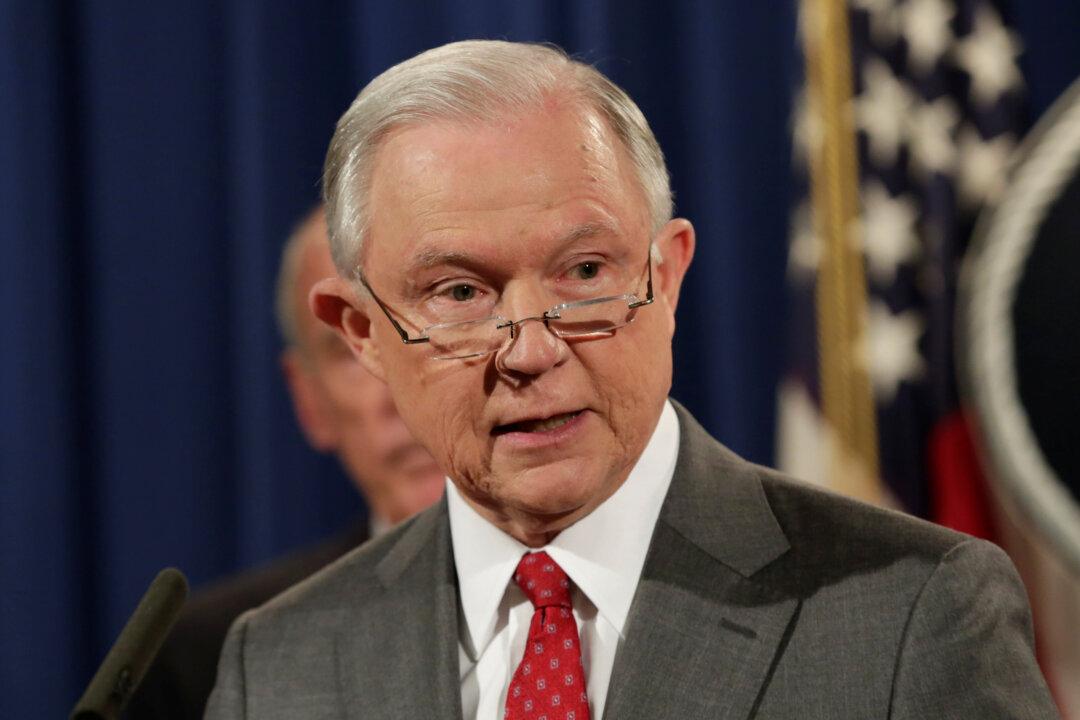During an Oct. 18 congressional hearing, Attorney General Jeff Sessions was pressed about recent news reports that the Obama administration was aware of a Russian bribery operation on a uranium deal tied to Hillary Clinton.
The Hill published an exclusive story on Oct. 17 showing that before the Obama administration approved its 2010 deal that gave Russia control of 20 percent of America’s uranium supply, “Russian nuclear industry officials were engaged in bribery, kickbacks, extortion and money laundering” meant to grow Russia’s nuclear energy business in the United States.





